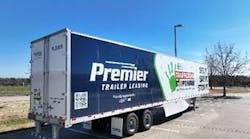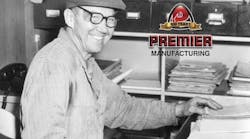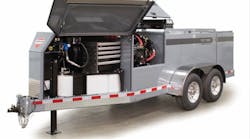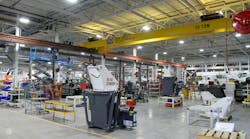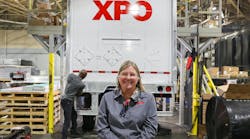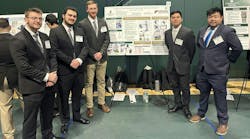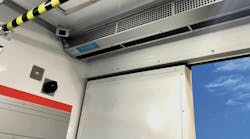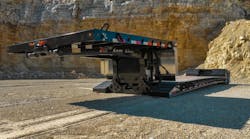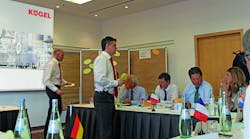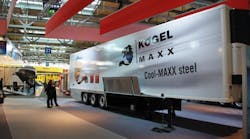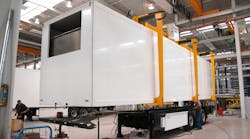What are some of the key issues facing European trailer customers? A recent workshop sponsored by Kögel, one of Europe’s largest trailer manufacturers, provided transportation industry leaders from several countries to weigh in.
Here is a summary of the discussion:
• Trailer aerodynamics – does it make sense? Alexander Süßmann, chairman of automotive engineering at the Technical University of Munich, delivered a thesis titled "Aerodynamics for Trailers." Using a standardized measurement procedure and real driving situations, Süßmann put the fuel savings of different aerodynamic products into perspective. He also was able to prove that the fuel savings are considerably less than specified by the manufacturers. He demonstrated that real savings can be achieved only when trailers travel consistently at speeds of 90 km/h (56 mph).
In some cases, it takes an extremely long time to recoup the purchase price. Süßmann recommends conducting independent, customer-specific cost-benefit analyses. The experiences of the association representatives in attendance confirmed Süßmann's findings.
A further problem: Aerodynamic products are extremely susceptible to requiring repair in normal traffic conditions. "The problem is that trailers with aerodynamic fittings cost a fortune,” said Willem Zonnevijlle, president of Transfrigoroute International. “They have to be repaired every couple of months."
• "Trailers today and tomorrow". Bernhard Bayer, Kögel’s head of research and development, addressed the requirements placed on trailers, including the environment, infrastructure, and political framework.
• City logistics constitute a particular challenge for transport companies. Dr. Thomas Baumgartner, president of the Italian Association of Forwarders (ANITA), named London as a particular problem zone. Sergej Baklitskiy the spokesman of the Russian Association of Forwarders ASMAP mainly complained about Moscow. Zonnevijlle commented that environmental regulations not only apply to city traffic; they now also apply to industrial areas. For example, at the Maasvlakte port in Rotterdam, a recent rule change means that only Euro 6 trucks or Euro 5 trucks which are no more than five years old can enter the port.
• Situation in Russia. Many trucks are lying idle at the moment due to the economic crisis and political situation, according to Baklitskiy. As a result, forwarders are forging new routes via Iran, Uzbekistan, Tajikistan, and Turkey. There are also a lot of transport routes to China, particularly in Siberia.
"We want more freedom and globalization," Baklitskiy said. "We also need reliable vehicles for our climate."
Telematics is a highly topical issue in Russia, Baklitskiy added. Around 70% of vehicles are now fitted with GPS, as it is virtually impossible to get a load otherwise.
• Regulatory wish list. Attendees were asked what they would like to see in regard to European regulations. Answers included standardization of country-specific regulations; increase in weight, height, and length limits; extended trailers and longer trucks; and a willingness to listen to trucking companies and not only the railway lobby.
When asked "In your opinion, what obstacles are there to efficient freight movement in Europe?" the first response was "We've got to get rid of the Alps!"
